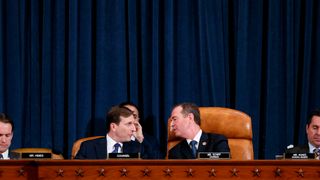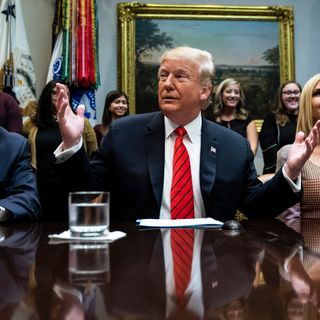It has been clear for some time that the House Intelligence Committee will recommend at least two articles of impeachment against President Trump:
- For bribery and abuse of power, in terms of Trump’s withholding military assistance to Ukraine in order to advance his personal political interests. The aid had been appropriated by Congress and enacted into law, but was used to pressure Ukraine into initiating investigations into Trump’s principal political rival for 2020, Joe Biden, and his son, Hunter Biden, as well as into potential Ukrainian collusion with the Democrats in the 2016 presidential campaign. A Trump meeting was also allegedly withheld from the president of Ukraine.
- For obstruction of Congress and its oversight responsibilities under Article I of the Constitution, in terms of blocking the testimony of witnesses and the provision of documents relating to congressional investigations of President Trump and his administration. This included orders to senior officials, such as the acting chief of staff Mick Mulvaney and the former national security advisor John Bolton, not to testify before relevant House of Representatives committees.
The record the Intelligence Committee is building is formidable and establishes that the president attempted to condition US-Ukraine relations on Ukraine’s direct involvement in activities designed to benefit Trump’s re-election by targeting his chief political opponent.
While these two articles of impeachment would capture a substantial part of the activities of President Trump that are subject to examination under the impeachment inquiry resolution adopted by the House in October, they do not reach to one further critical area of activity by the president in violation of his oath of office:
The corruption of proper government processes by the establishment of a parallel, shadow foreign policy structure through Rudy Giuliani – a private citizen and personal attorney to Trump – that by-passed and overrode the execution of formal US foreign policy with respect to Ukraine. This is repeatedly documented in the depositions and testimony of Ukraine Acting Ambassador William Taylor, EU Ambassador Gordon Sondland, former ambassador Kurt Volker, national security staff Lt. Col. Arthur Vindman, State Department officer David Holmes (“Our diplomatic policy… became overshadowed by a political agenda being promoted by Rudy Giuliani”) and others.
The displacement of the State Department officials and diplomats by the president's personal attorney, and his associates, constitutes malfeasance in office. An article of impeachment on malfeasance would address the corruption of the US government’s official foreign policy processes with respect to Ukraine – all the things Trump, Mulvaney, Secretary of State Pompeo and Secretary of Energy Perry did that were irregular in the conduct of foreign policy towards Ukraine – and capture the activities of Rudy Giuliani, which were expressly encouraged by President Trump (“I will have Mr Giuliani give you a call,” Trump said to Zelensky).
A hallmark of aggressive oversight by Congress is to uncover malfeasance by public officials holding high office. From the deliberations of the Founders, “high crimes and misdemeanors” – part of the basis in the Constitution for impeachment – certainly included maladministration of office.
While further testimony before the Intelligence and Judiciary Committees will amplify this issue, assessment of an article of impeachment on President Trump’s malfeasance in the conduct of the foreign policy of the United States merits consideration by the Intelligence Committee.







